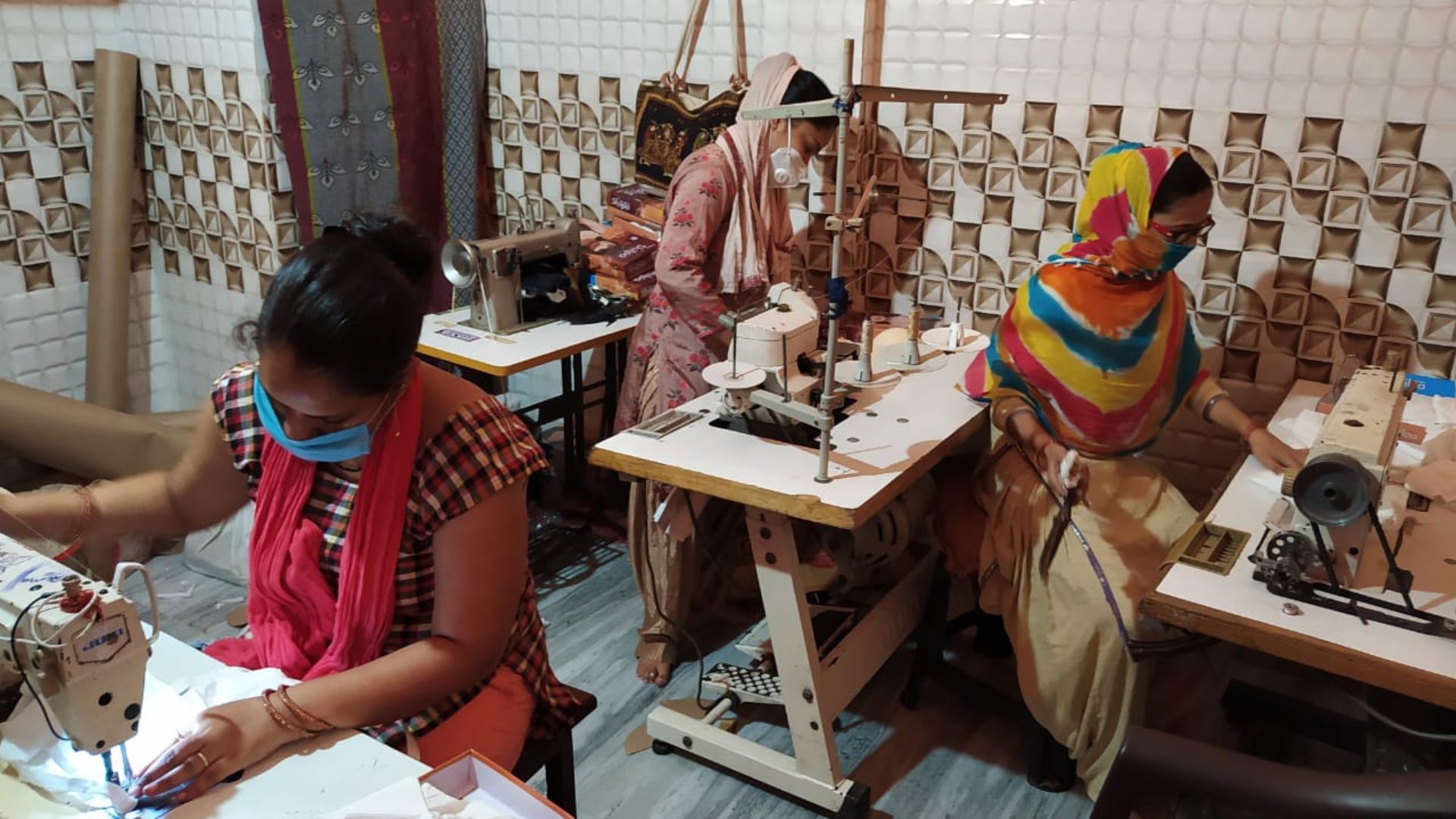Canfem, a Nexus-trained social enterprise, helps breast cancer survivors through tailored products and support services.
March 2021

Women from rural areas work on creating comfortable products for breast cancer survivors. Photograph courtesy Canfem
Breast cancer represents one in four cancers diagnosed among women globally, according to GLOBOCAN 2020, an online database providing global cancer statistics. Women who undergo mastectomy as a surgical treatment for breast cancer may have to deal with physical health issues as well as psychological issues like negative body image and reluctance to socialize.
A Haryana-based start-up, Canfem, is helping breast cancer survivors by designing comfortable and affordable products and services, which would help make their recovery process more smooth. The social enterprise grew out of a family’s fight against cancer and personal loss. Founded by the mother-daughter team of Akriti Gupta and Kavita Gupta, Canfem is the result of years of advocacy for cancer survivors and patient rights. “In 2015, my dad was the chief financial officer of a mid-sized company, which let him go because of his long stints in hospital” for cancer treatment, says Akriti. Her father, a chartered accountant, could work from home as an independent consultant. However, he realized that for others in a similar situation, especially those without access to education and other means, earning a livelihood could be difficult. He encouraged Akriti, then 17, to explore how they could help such people. Together, they came up with an app which provided information about training programs and useful resources from government programs and corporate social responsibility wings of different companies. They also organized awareness sessions with college students through their organization, Win Over Cancer. The programs used innovative games and interactive sessions to engage and educate young people about cancer and its impact.
Creating Canfem
Mr. Gupta’s intensive treatment often meant long stays at the hospital, where Akriti and her mother saw the different experiences of cancer patients, especially women undergoing treatment for and surviving breast cancer. “That’s where we learnt firsthand how difficult it was for mastectomy patients to find the right kind of prosthesis,” says Akriti. Most prostheses are made of silicone or foam, which could be expensive, uncomfortable and can often become a breeding ground for bacteria, causing allergic reactions. Akriti’s mother Kavita, who has a deep interest in Indian textiles, was intrigued and wondered how available cotton material could be refashioned to design more comfortable and affordable prostheses. In 2019, as part of her master’s program at the Tata Institute of Social Sciences, Akriti did a multistakeholder study on the experiences of breast cancer survivors, which showed her that both lower income and middle income groups in India needed affordable breast prostheses. These experiences and information led to the establishment of Canfem.
In order to ensure that Canfem’s products were rigorously tested, Akriti met with an oncologist at the All-India Institute of Medical Sciences in New Delhi, who encouraged patients to become part of a pilot program which involved more than 2200 participants. The prostheses designed by Canfem, which are listed on Amazon, Flipkart and lingerie portals in India, can be customized as per the user’s needs. “While usual market rates (for breast prosthesis) range from Rs. 8,000 upward, ours start from Rs. 1,500,” says Akriti. Additionally, “we had generous donors who made it possible to donate the product to those who could not afford it,” she says. To manufacture these prostheses, Canfem has employed women from rural Haryana, thereby ensuring their financial independence and additional income for their families.
“The idea for Canfem came when my dad had been diagnosed with cancer,” says Akriti. “Most people said I should get a stable job and the idea of Canfem did not get much encouragement.” But entrepreneurs, says Akriti, especially women considering entrepreneurship ideas, should not overthink their plans. “The only difference between those who did and those who did not was the first step taken,” she says.
Canfem, which was registered as a social for-profit enterprise in 2020, recently received training at the Nexus Start-up Hub at American Center New Delhi. “The program was instrumental in helping me understand problems better, getting stakeholders together and making an elevator pitch. My business pitch got so much more refined,” says Akriti. “The mentors were great! It helped me kickstart my venture formally. It gave me the skill set and confidence that will help me in the future as well.”
Akriti plans to expand Canfem to make it a one-stop hub for information, education and empowerment, which can improve the quality of life for cancer patients and their families. “We need to build a stronger peer education and connection network in India,” she says “and we are working toward that.”
Paromita Pain is an assistant professor of Global Media Studies at the University of Nevada, Reno.
COMMENTS